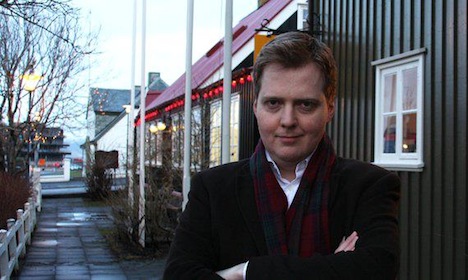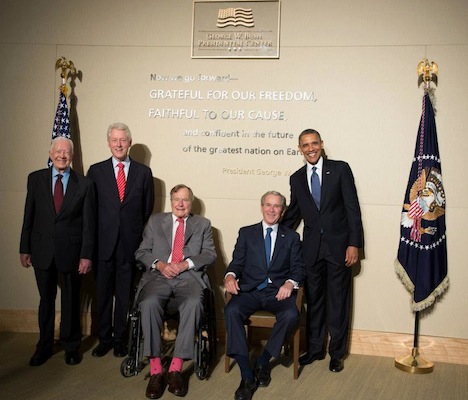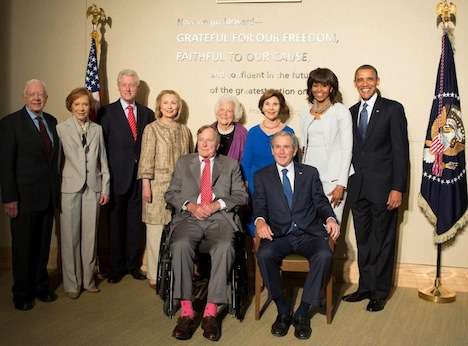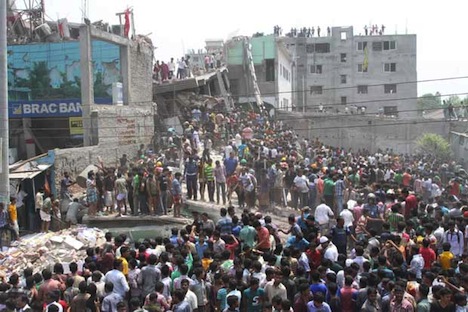Kim Jong-un, at age 30, is the world’s youngest leader, and there are only a handful of thirtysomething world leaders.![]()
But if polls are correct, Sigmundur Davíð Gunnlaugsson (pictured above) may lead Iceland’s Framsóknarflokkurinn (Progressive Party) to victory in April 27’s parliamentary elections, giving the Progressives their best victory since 1931 and, perhaps, in its history. That would make Gunnlaugsson, at age 37, the country’s youngest prime minister since its 1944 independence.
Icelandic voters go to the polls Saturday after a fairly tumultuous time over the past five years following the 2008 collapse of its banking sector, a massive depreciation and the introduction of capital controls on Iceland’s currency, the krónur, despite a return to tepid GDP growth after a 6.5% contraction in 2009 and an unemployment rate that’s now below 5%.
I’ll sideswipe the long debate among American economists over whether Iceland’s economic policy was smarter than that in Ireland or the Baltic states. If you want an in-depth take from an Icelandic observer, read this instead. I’ll add that Iceland’s ability to set its own monetary policy certainly helped it bounce back in terms of GDP growth, but it also glided the path for a massive krónur depreciation and inflation that’s eroded those gains that Iceland has made in the past five years. Much of Iceland’s household debt, before 2008, was denominated in non-krónur currencies, and debt today is otherwise linked to currency or inflation indices. That has made debt repayment, especially for home mortgages, a grueling nightmare in post-boom Iceland.
So the economic situation is Iceland is complicated, and though there’s a lot of evidence to suggest that Iceland’s economy might even be worse if it were part of the eurozone, that doesn’t mean that the everyday Icelandic voter feels like things are quite back to normal.
But politics, however, do seem set to return to the pre-boom ‘normal,’ given that the Progressives were a longtime ally of the dominant party in Iceland’s history since independence, the Sjálfstæðisflokkurinn (Independence Party), which was formed precisely — as you may have guessed — to enact Icelandic independence from Denmark.
The two parties are now fighting for first place in the April 27 parliamentary elections, and it’s virtually certain that they’ll form the coalition that constitutes Iceland’s next government. No party in Iceland’s post-independence history has even won an absolute majority in the 63-member Alþingi, Iceland’s parliament.
Polls have shown the Progressive Party with a growing lead throughout 2013, stemming largely from their insistence that Iceland should not reimburse the U.K. and other governments for the Icesave debacle — non-Icelandic savers who had deposited their money in Icesave were wiped out in late 2008, and though their own government have largely made them whole, they have turned to Iceland for repayment with interest. Although most Icelandic parties agree that Iceland should make the payment, the matter’s been tangled up in both domestic and international litigation, and the repayments are very, very unpopular among the Icelandic electorate.
But the Independence Party seems to be catching up once again, and the two parties are now essentially tied for the lead, meaning that either party could win the greatest number of seats in the Alþingi. If the Independence Party does edge out the Progressives, Iceland’s new prime minister could be the Independence Party leader, Bjarni Benediktsson (pictured below), who only narrowly survived a leadership challenge a couple of weeks ago, when the party’s polling numbers were more depressed.
 Continue reading Center-right parties poised to return to power in Iceland
Continue reading Center-right parties poised to return to power in Iceland



